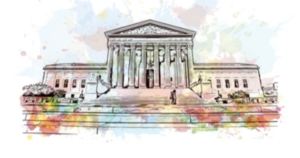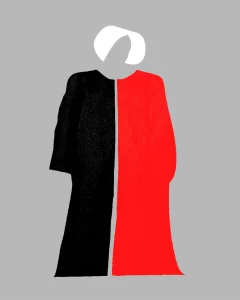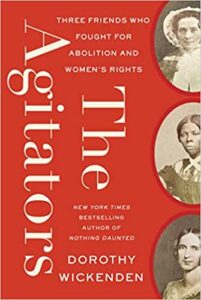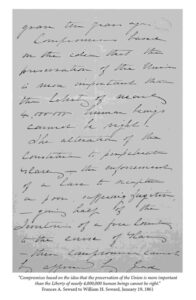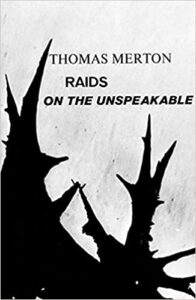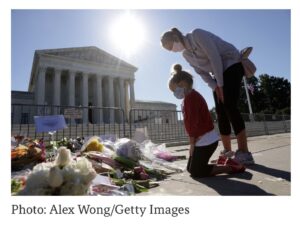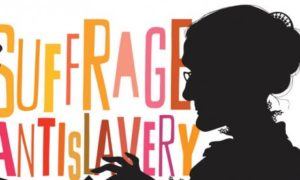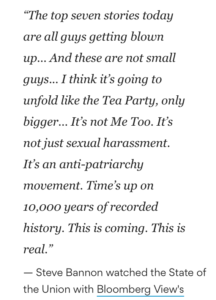Women’s Rights
‘…on a moral basis.’
May 16, 2022P U C K
The Real Tragedy of Samuel Alito’s Logic
by, BARATUNDE THURSTON
“Yet this leaked Supreme Court ruling would steal that decision away from pregnant women and instead encourage a policy of forced birth in a society that does not value the lives of those being birthed—or those doing the birthing. This decision empowers those invested only in the creation of life, not the quality of life. If we cared about quality of life for the living, we would offer up more than “’houghts and prayers’ in response to our record levels of life-ending gun violence. We would move heaven and earth to reverse the life-ending effects of the climate crisis. But we aren’t regulating gun manufacturers or carbon-spewing industries. Instead, we’re choosing to use our finite resources to regulate women…”
[…]
“We need to acknowledge that this issue is not simple and that morality and legality are different things. From my reading of the Pew Research, even those strongly opposed to abortion on a moral basis don’t believe it should be illegal in most cases. I know women who’ve had abortions, and I can attest to the seriousness with which they’ve made that decision. It’s not fun. It’s emotional and difficult and painful, but it’s also something they deemed necessary. Most people don’t want to be in a position to have to choose an abortion.
For some women in, abortion is the only way to save their lives, and the new wave of incoming restrictions will bring new stresses and new threats. As a friend of mine and mother of three recently told me, ‘Suddenly planning for my children’s future is not about saving for college—it’s finding ways to protect them from being thrown in jail for having a miscarriage.’ We should not criminalize women or further isolate them. We need to trust women and close that gap between the practice and promise of this country on our path to liberty and justice for all. I think we can. I believe we must. I know it will be hard.”
[Full Piece]
I INVENTED GILEAD. THE SUPREME COURT IS MAKING IT REAL.
I thought I was writing fiction in The Handmaid’s Tale.
T H I S:
It ought to be simple: If you believe in “ensoulment” at conception, you should not get an abortion, because to do so is a sin within your religion. If you do not so believe, you should not—under the Constitution—be bound by the religious beliefs of others. But should the Alito opinion become the newly settled law, the United States looks to be well on the way to establishing a state religion. Massachusetts had an official religion in the 17th century. In adherence to it, the Puritans hanged Quakers. The Alito opinion purports to be based on America’s Constitution. But it relies on English jurisprudence from the 17th century, a time when a belief in witchcraft caused the death of many innocent people. The Salem witchcraft trials were trials—they had judges and juries—but they accepted “spectral evidence,” in the belief that a witch could send her double, or specter, out into the world to do mischief. Thus, if you were sound asleep in bed, with many witnesses, but someone reported you supposedly doing sinister things to a cow several miles away, you were guilty of witchcraft. You had no way of proving otherwise. Similarly, it will be very difficult to disprove a false accusation of abortion. The mere fact of a miscarriage, or a claim by a disgruntled former partner, will easily brand you a murderer. Revenge and spite charges will proliferate, as did arraignments for witchcraft 500 years ago. If Justice Alito wants you to be governed by the laws of the 17th century, you should take a close look at that century. Is that when you want to live? https://www.theatlantic.com/ideas/archive/2022/05/supreme-court-roe-handmaids-tale-abortion-margaret-atwood/629833/?utm_source=newsletter&utm_medium=email&utm_campaign=atlantic-weekly-newsletter&utm_content=20220515&silverid=%25%25RECIPIENT_ID%25%25&utm_term=This%20Week%20on%20TheAtlanticcomAbolition, Women’s Rights & America’s 2nd Revolution
May 7, 2021From the intimate perspective of three friends and neighbors in mid-nineteenth century Auburn, New York—the “agitators” of the title—acclaimed author Dorothy Wickenden tells the fascinating and crucially American stories of abolition, the Underground Railroad, the early women’s rights movement, and the Civil War.
Harriet Tubman was one of the most important conductors on the underground railroad and hid the enslaved men, women and children she rescued in the basement kitchens of Martha Wright, Quaker mother of seven, and Frances Seward, wife of Governor, then Senator, then Secretary of State William H. Seward.
Many of the most prominent figures in the history books—Lincoln, Seward, Daniel Webster, Frederick Douglass, Charles Sumner, John Brown, Harriet Beecher Stowe, William Lloyd Garrison—are seen through the eyes of the protagonists. So are the most explosive political debates: about women’s roles and rights during the abolition crusade, emancipation, and the arming of Black troops; and about the true meaning of the Declaration of Independence and the Constitution.
Beginning two decades before the Civil War, when Harriet Tubman was still enslaved and Martha and Frances were young women bound by law and tradition, The Agitators ends two decades after the war, in a radically changed United States. Wickenden brings this period of our history to life through the richly detailed letters her characters wrote several times a week. Like Doris Kearns Goodwin’s Team of Rivals and David McCullough’s John Adams, Wickenden’s The Agitators is revelatory, riveting, and profoundly relevant to our own time. [Amazon]
The New Yorker Radio Hour
“The Agitators” is a book about three women—three revolutionaries—who changed the world at a time when women weren’t supposed to be in public life at all. Frances Seward was a committed abolitionist who settled with her husband in the small town of Auburn, in western New York. One of their neighbors was a Quaker named Martha Coffin Wright, who helped organize the first convention for women’s rights, at Seneca Falls. Both women harbored fugitives when it was a violation of federal law. And, after they met Harriet Tubman, through the Underground Railroad, Tubman also settled in Auburn. “The Agitators,” by The New Yorker’s executive editor, Dorothy Wickenden, tells their interlocking stories. “These people were outsiders, and they were revolutionaries,” Wickenden tells David Remnick. “They were only two generations separated from the Declaration of Independence, which they believed in literally. They did not understand why women and Black Americans could not have exactly the same rights that had been promised.”
Thomas Merton:
‘You can easily guess that in using the term “innocent bystander” I had to examine my conscience to see whether I was being facetious. I do not remember if I smiled when I first thought of it; but, in any case, I am no longer smiling. For I do nothing the question of our innocence can be a matter for jesting, and I am no longer certain that it is honorable to stand by as the helpless witness to a cataclysm, with no other hope than to die innocently and by accident, as a nonparticipant.’
[Raids one the Unspeakable]
A valentine to Elizabeth and Susan.
February 14, 2018Remembering their earlier struggles, Anthony closed her letter: “And we, dear old friend, shall move on the next sphere of existence—higher and larger, we cannot fail to believe, and one where women will not be placed in an inferior position, but will be welcomed on a plane of perfect intellectual and spiritual equality.” The sentiment was timelier than anyone expected. Stanton, who had been homebound and in ill health but still publishing commentaries, died before the letter was published on October 26, 1902, two-and-a-half weeks before her birthday.
In her letter, Anthony sounds optimistic, despite her lament that only in death will they experience equality. She seems confident in the suffrage movement’s new leaders. There is a sense that things can only move forward for women.
-Humanities Magazine, by Katy June-Friesen, Volume 35, Number 4

